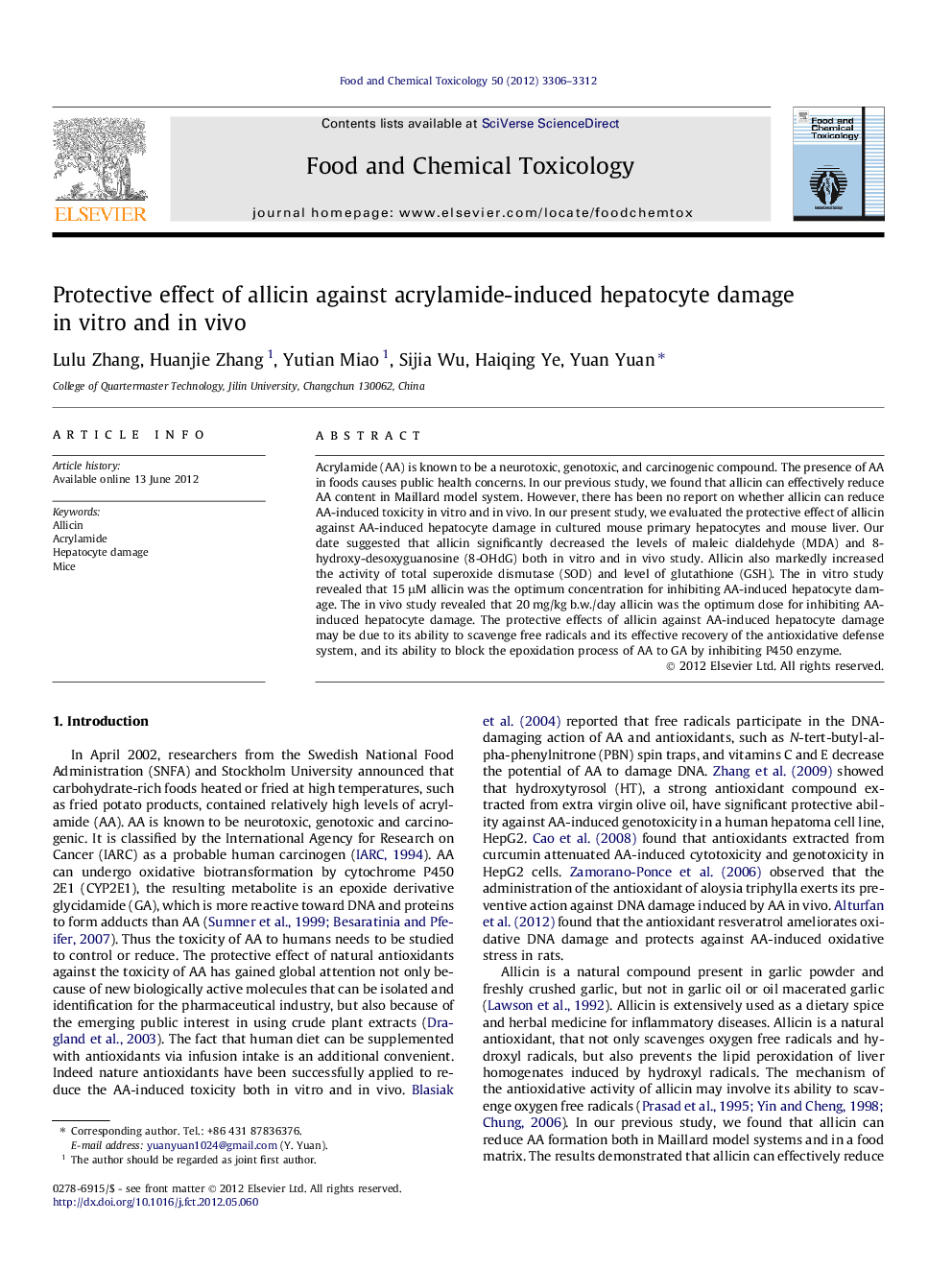| Article ID | Journal | Published Year | Pages | File Type |
|---|---|---|---|---|
| 5852250 | Food and Chemical Toxicology | 2012 | 7 Pages |
Acrylamide (AA) is known to be a neurotoxic, genotoxic, and carcinogenic compound. The presence of AA in foods causes public health concerns. In our previous study, we found that allicin can effectively reduce AA content in Maillard model system. However, there has been no report on whether allicin can reduce AA-induced toxicity in vitro and in vivo. In our present study, we evaluated the protective effect of allicin against AA-induced hepatocyte damage in cultured mouse primary hepatocytes and mouse liver. Our date suggested that allicin significantly decreased the levels of maleic dialdehyde (MDA) and 8-hydroxy-desoxyguanosine (8-OHdG) both in vitro and in vivo study. Allicin also markedly increased the activity of total superoxide dismutase (SOD) and level of glutathione (GSH). The in vitro study revealed that 15 μM allicin was the optimum concentration for inhibiting AA-induced hepatocyte damage. The in vivo study revealed that 20 mg/kg b.w./day allicin was the optimum dose for inhibiting AA-induced hepatocyte damage. The protective effects of allicin against AA-induced hepatocyte damage may be due to its ability to scavenge free radicals and its effective recovery of the antioxidative defense system, and its ability to block the epoxidation process of AA to GA by inhibiting P450 enzyme.
⺠Allicin was effective in preventing AA-induced hepatocyte damage. ⺠Allicin could decrease the level of MDA and 8-OHdG of hepatocyte. ⺠Allicin could increase the level of GSH and SOD activity of hepatocyte.
